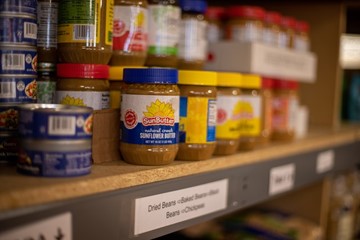Alan Belin is an entrepreneur and nonprofit leader. In the following article, Alan Belin discusses the importance of food security in Chicago, Illinois and how organizations like the Chicago Food Project are helping those in need.
Unfortunately, Chicago is a city that is not just renowned for its classic baseball field or windy atmosphere; it is also known as a place rife with the problem of human beings facing hunger every day.
According to a report by the CEO of the Greater Chicago Food Depository recorded by WTTW News, the demand for food from charitable pantries is growing year by year. The cost of meeting demands is growing thanks to inflation. Because of this, the need for food security in Chicago should be met by partnerships between organizations like the Chicago Food Project.
Below, Alan Belin discusses more on the actual verifiable increase in the need for charitable organizations in Chicago.
Alan Belin Explains Why Food Pantry Partnerships are Essential
Even an organization that is up and running and making the most of its resources can have enough to deal with without having to manage the difficulties that often come with collaboration. However, there is no denying that partnerships between food pantries are an absolute must in recent years, particularly for cities facing dire situations of hunger and homelessness.
According to the Greater Chicago Food Depository, one in four children in the city are at risk of facing hunger. In fact, in the year 2022, hunger in households in Chicago overall rose from 13 percent to 16 percent and rose even higher in households with children.
Alan Belin says that the economic downturn that followed the COVID-19 pandemic, resources, not only when it comes to food, but employees as well thanks to the rise in layoffs, has only contributed to rising hunger in major cities like Chicago.
Based on this information, it is clear that the need for a resolution to the hunger crisis is certainly increasing. However, does this mean that partnerships between food pantries ad businesses are just as necessary?
Alan Belin says absolutely – the benefits gained by businesses in partnering go beyond increasing positive public relations. Communities are served, waste is eliminated, and lives are ultimately changed for the better.
Perhaps nowhere are these benefits better demonstrated than with the Chicago Food Project.
Diving into the Chicago Food Project
This organization is dedicated to creating a better future for those in and around the city, specifically by easing suffering caused by hunger. The Chicago Food Project accepts donations of food, money, and time.
Alan Belin notes that they work to incorporate the community of Chicago’s citizens, not just in solving dilemmas like hunger, but in a sense of unity while overcoming challenges. This is reflected in their mission, which is to aid neighbors in living fulfilling lives by creating access to food as well as opportunities, equally, through partnerships in the community.
Of course, this reflects the value that access to food, which is not only sustaining, but nutritious, is one of the basic human rights. As such, the Chicago Food project is fully committed to taking care of the needs of the community of Chicago.
Alan Belin explains that this is done in many ways, though the two primary categories are supporting services and food distribution. It is the partnerships which the Chicago Food Project sets an example of that the Chicago area could certainly use more of.
 Partnerships
Partnerships
Alan Belin reports that the Chicago Food Project has already partnered, not just with other organizations, but with individuals, as evidenced by the many ways they provide opportunities for community members to get involved with their cause: ending hunger in Chicago.
These are listed below:
- Donations – As previously mentioned, the organization allows community members to partner with them through two kinds of donations. One is a one-time type of donation, wherein no monetary amount is too little, and the other is an annual donation, which can make a major difference.
- Volunteer Opportunities – Chicago Food Project offers just as many varieties of opportunities for volunteers to come and assist with their events.
- Subscriptions – Individuals in the community can also stay up to date on how they can help the Chicago Food Project, or what needs are present in the Chicago area, by subscribing to the newsletter put out by the Chicago Food Project.
In Conclusion
The need for food security in Chicago is growing. Access to food should be a fulfillment of the right that all human beings have; with partnerships between pantries and food organizations like Chicago Food Project, it can be!









